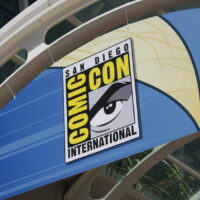San Diego Comic-Con Wins Trademark Lawsuit Against Salt Lake Comic Con
 San Diego – After a long-running battle, a jury in San Diego decided in favor of Comic-Con International, the nonprofit behind San Diego Comic-Con, which has been an iconic pop culture fan event for a whopping 50 years. The ruling holds that San Diego Comic-Con does hold trademark rights to “Comic-con”.
San Diego – After a long-running battle, a jury in San Diego decided in favor of Comic-Con International, the nonprofit behind San Diego Comic-Con, which has been an iconic pop culture fan event for a whopping 50 years. The ruling holds that San Diego Comic-Con does hold trademark rights to “Comic-con”.
The lawsuit began when San Diego Comic-Con claimed that the two defendants Daniel Farr and Bryan Brandenburg chose to capitalize on the goodwill and success of San Diego Comic-Con’s brand in using the term “comic con” as a descriptor for their event. Farr advertised his comic convention, Salt Lake Comic Con, by announcing “Comic-Con is coming to Utah,” which San Diego Comic-con claimed implied affiliation to San Diego Comic-Con.
The jury decided that the Comic-Con trademark is valid, and that Salt Lake City used it in a way likely to cause confusion to customers. However, the jury found the infringement of the Comic-Con trademark unintentional, therefore San Diego Comic-Con was only awarded $20,000 for corrective advertising. San Diego Comic-Con had originally asked for $12 million.
For San Diego Comic Con to uphold its branding, the Court ruling allows it to seek licensing agreements with more than 140 events in the United States. These events include some variation of “Comic Con,” in the name. This includes several large independent shows such as New York Comic Con and Emerald City ComiCon. All of them will now need to obtain a license from Comic-Con International to use the term, or else rename the events.
Farr and Brandenburg of Salt Lake Comic Con protested that the term “comic con” was generic, and that Comic-Con International’s trademark applied only to “Comic-Con” (with a hyphen). They pointed to numerous examples of fan events calling themselves comic conventions as evidence that Comic-Con International either did not own the trademark as they claimed or was so inattentive to enforcement and licensing that they could not legally single out Salt Lake Comic Con in this case.
However, a couple of event organizers had pre-emptively taken the steps to enter into license agreements with Comic-Con International such as Informa (Boston Comic Con, FanExpo) and Left Field Media (Rose City Comic Con).
Furthermore, Farr and Brandenburg took the case public and ran a coordinated social media campaign with promoted ads getting fans to agree that the phrase “comic con” belongs to everyone, not one establishment. However, once the case moved toward trial, the Judge did not take too kindly to these efforts and threatened to jail Farr and Brandenburg if they tried to “escalate this into a case involving the world.”













